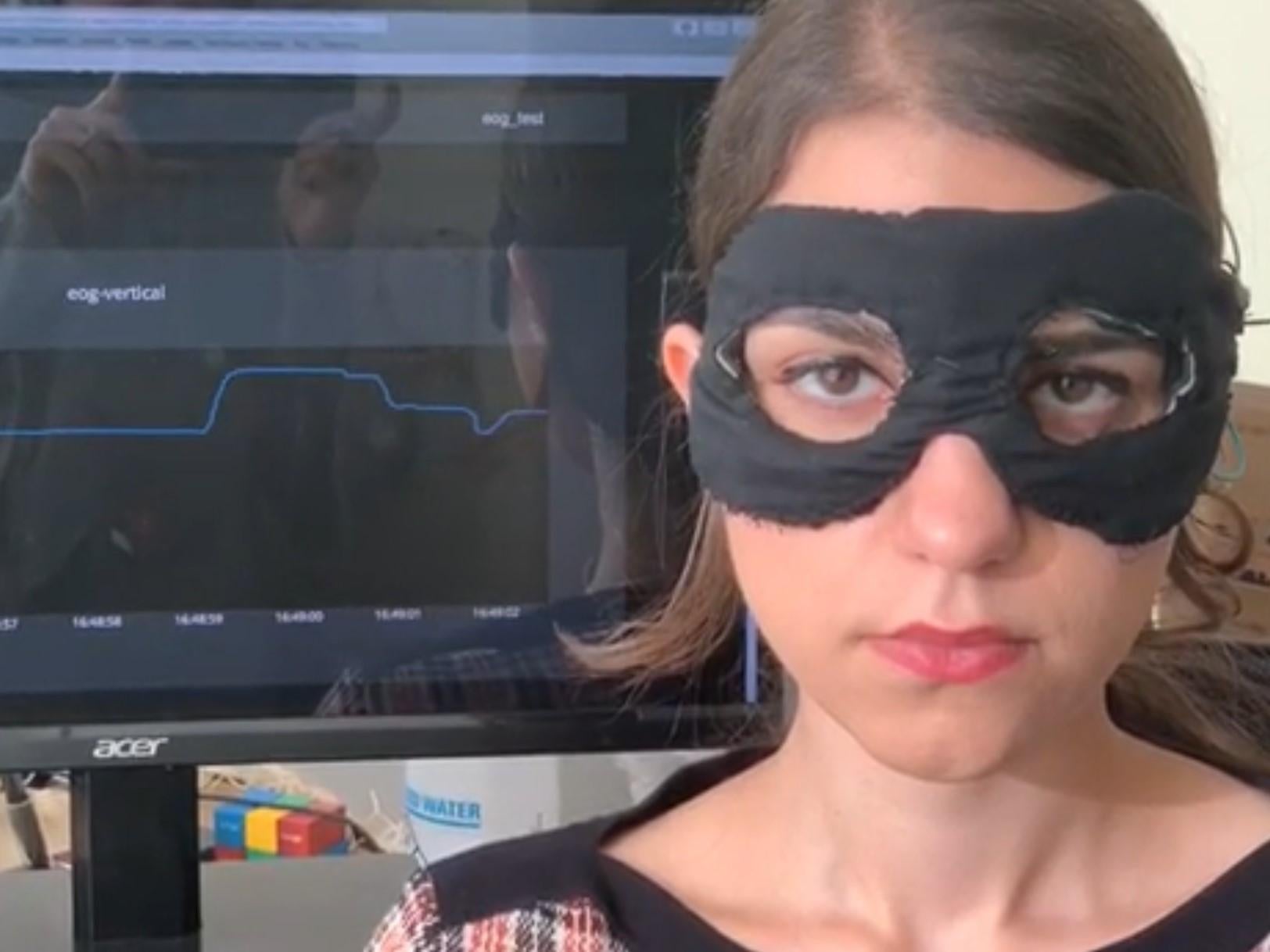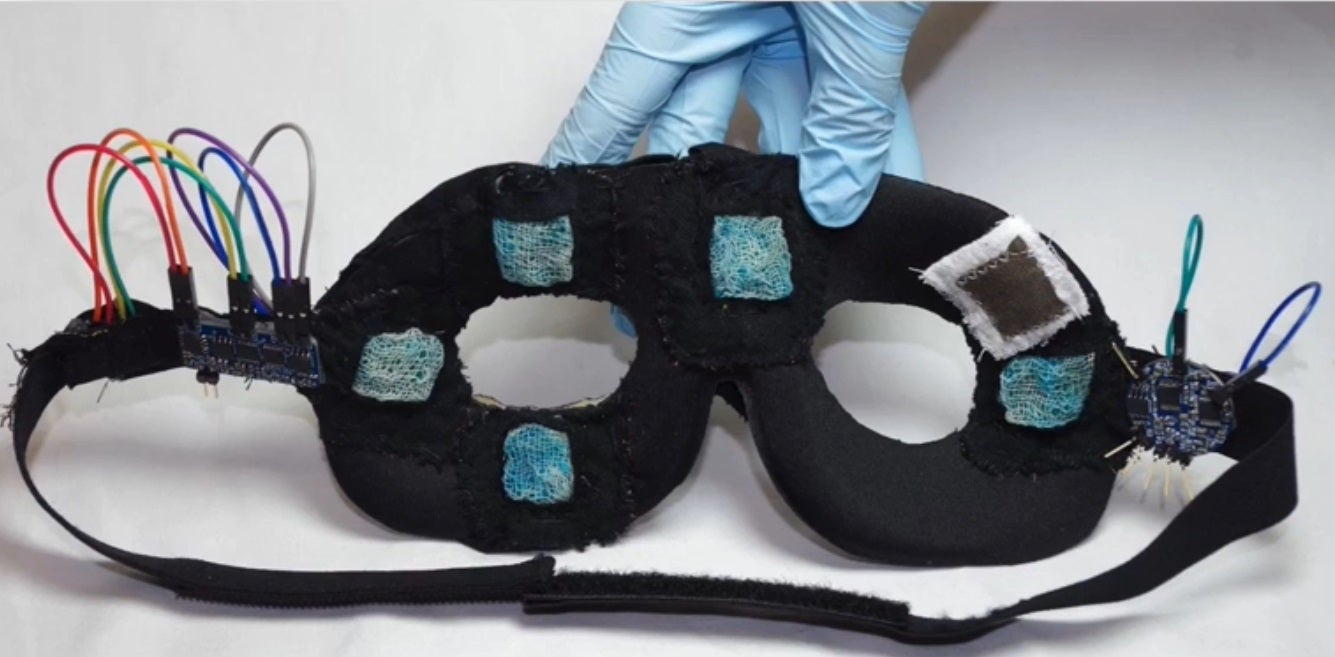Scientists invent eye mask to track what you're looking at
Chesma eyewear could be used in everything from sleep analysis, to VR gaming

Scientists have invented a lightweight mask capable of accurately tracking the precise eye movements of the wearer.
The wearable technology could provide insights into sleep patterns, as well as be used within virtual reality and gaming environments, according to researchers from the University of Massachusetts Amherst, who developed the eyewear.
Other applications could also include psycho-social studies and advertisement performance analysis, as it could tell what "caught people's eye."
"Our mask can track people's eye movement as they're shown images, so you can start to understand what they're paying attention to, for how long, whether they keep finding other places to look," said Trisha Andrew, who led the research.
The eyewear, known as Chesma, was presented in the journal Matter on Thursday.

The mask integrates washable hydrogel electrodes with a pulse sensor to track a wearer's eye movement and cardiac data without compromising their comfort or taking them out of their everyday environment.
It was tested on subjects as they were eating, talking and performing various head movement exercises.
The hydrogels are also extremely durable, capable of resisting build-up from makeup and pollution and withstanding up to 15 laundry cycles.
"Our team was able to really address that core problem to create a garment that you would be willing to wear and give you clinically accurate results when you use it," said Dr Andrew.
The mask could be used to better understand whether a person has sleep disorder problems or if they suffer from underlying heart issues.
The team now hope to extend the wearable's battery life from eight hours to several days, while also exploring potential applications within virtual reality and gaming.
Join our commenting forum
Join thought-provoking conversations, follow other Independent readers and see their replies
Comments
Bookmark popover
Removed from bookmarks